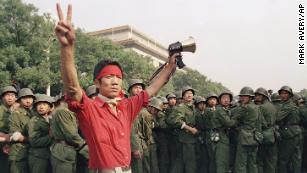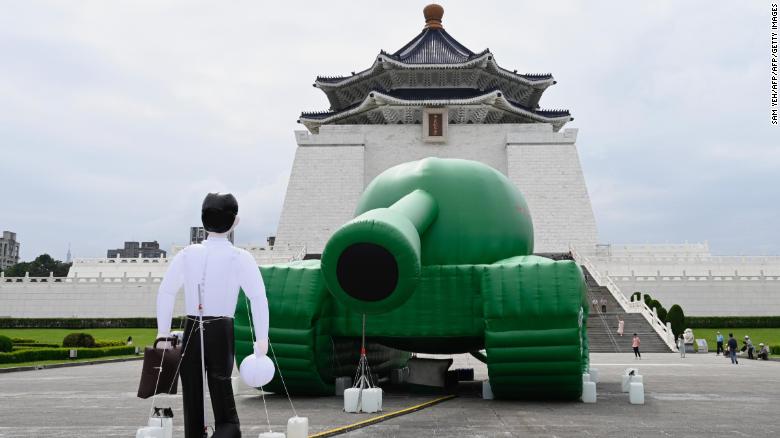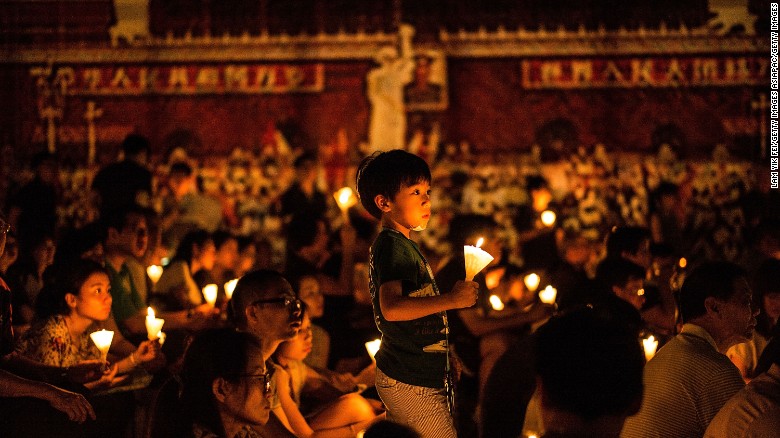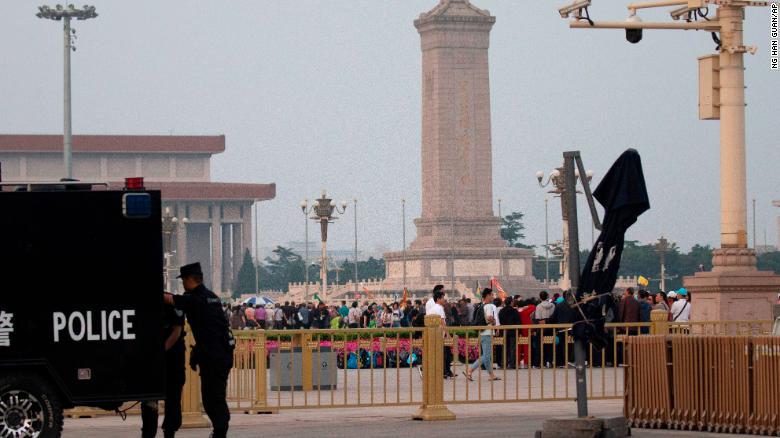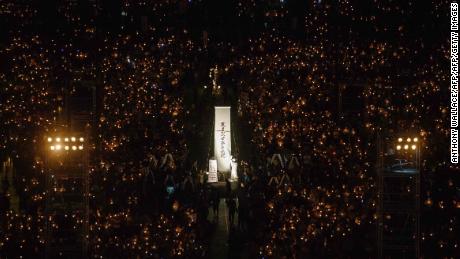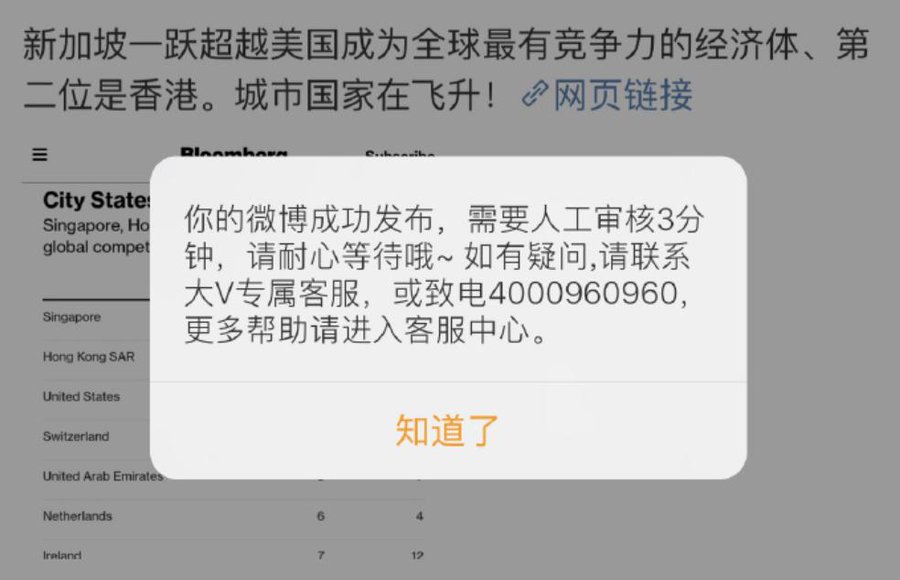By Oscar Holland
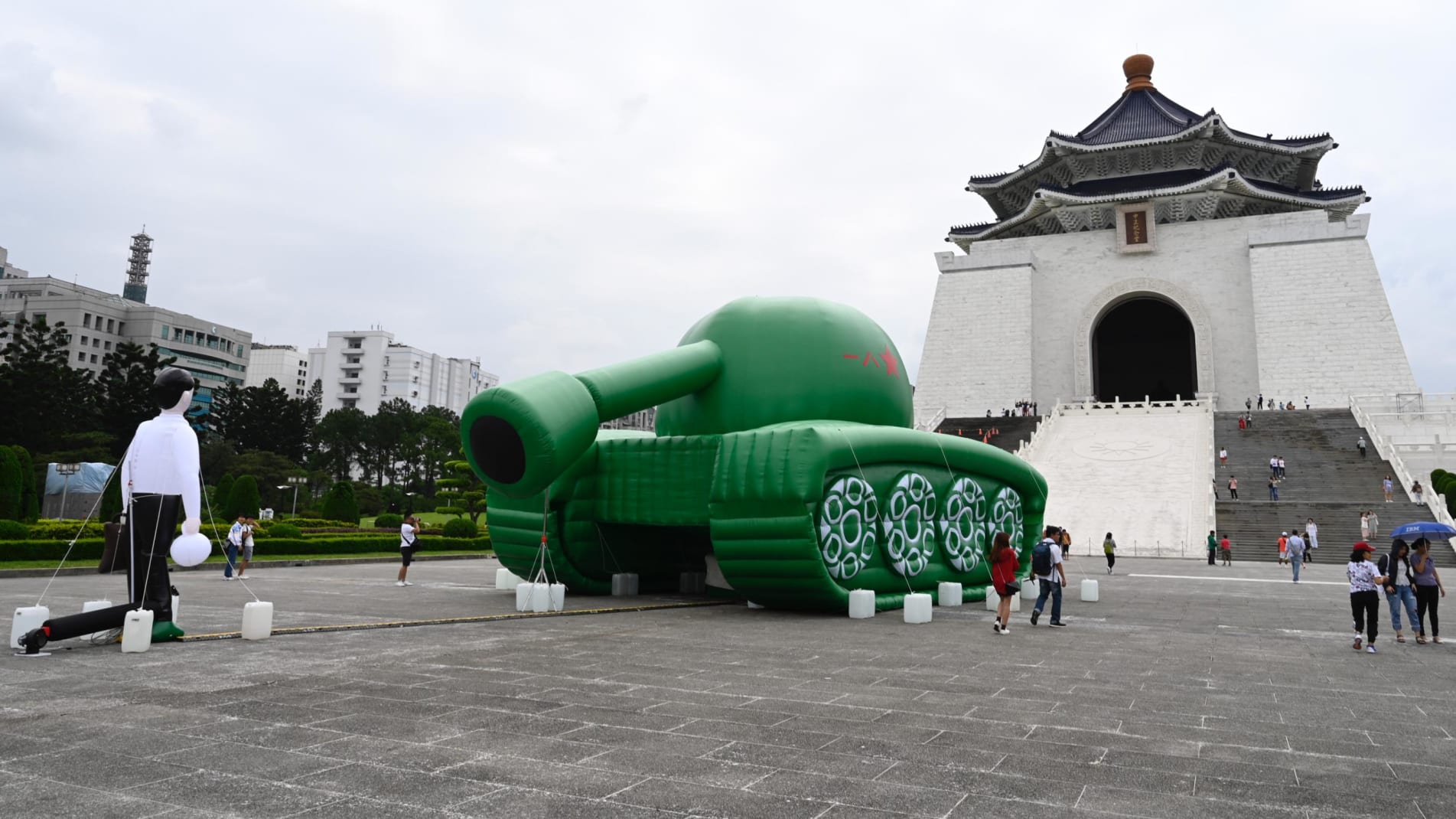
An inflatable artwork depicting the infamous "Tank Man" incident has appeared in the heart of Taiwan's capital, Taipei, nearly two weeks before the 30th anniversary of the 1989 Tiananmen Square crackdown in Beijing.
Recreating a widely-known image from China's ill-fated 1989 pro-democracy protests, the provocative sculpture has been installed outside the Chiang Kai-shek Memorial Hall, one of Taiwan's most visited tourist attractions.
The sculpture is reportedly the work of Taiwanese multimedia artist Shake, whose previous projects have explored history, identity and geopolitics.
Her balloon artwork recreates the moment when an unidentified man stood before a row of tanks in a Beijing street following a military crackdown.
Estimates of the death toll from the crackdown range from several hundred to thousands.
An official death toll has never been released.
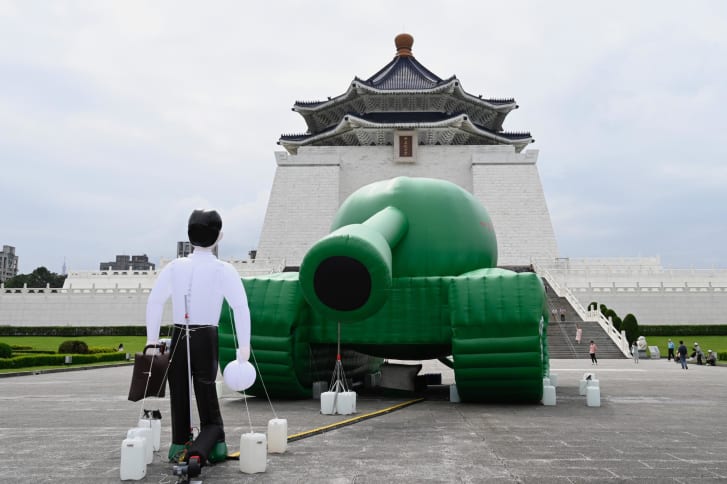
"Tank Man" sculpture installed in front of Chiang Kai-shek Memorial Hall.

"Tank Man" sculpture installed in front of Chiang Kai-shek Memorial Hall.
Outside China, "Tank Man" has become one of the 20th century's most iconic images.
After the initial standoff, famously captured by American photographer Jeff Widener from the balcony of a nearby hotel, the unknown man was filmed climbing up to the tank's turret and speaking to a soldier inside, before dismounting.
The image Widener shot for the Associated Press soon spread around the world, and is now the most recognized symbol of the bloody crackdown.
The image Widener shot for the Associated Press soon spread around the world, and is now the most recognized symbol of the bloody crackdown.
It was taken the day after the so-called "June Fourth Incident," in which China's military cleared Tiananmen Square of protesters who had gathered to call for democratic reforms.
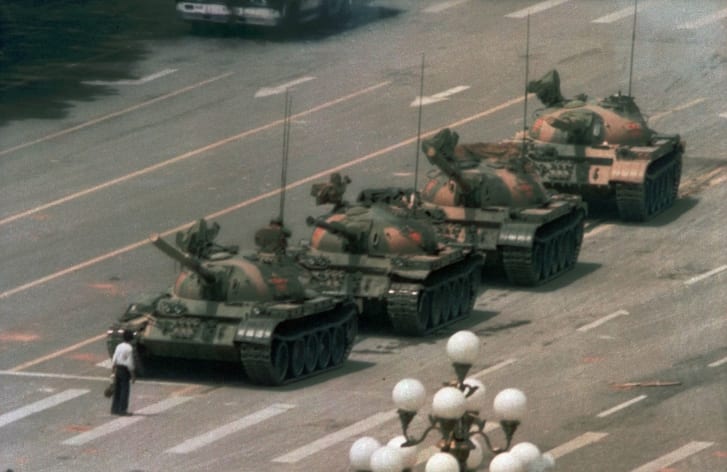
American photographer Jeff Widener's famous images was captured from the balcony of a nearby hotel.

American photographer Jeff Widener's famous images was captured from the balcony of a nearby hotel.
The incident remains a sensitive topic in China, and the "Tank Man" image -- along with recreations and parodies of it -- are regularly subjected to online and media censorship.
Taipei's Chiang Kai-shek Memorial Hall, named after the defeated leader who fled to the island after the Communist revolution in 1949, is considered one of the city's top tourist sites, attracting, invariably, visitors from the mainland.
According to statistics from Taiwan's Tourism Bureau, almost 2.7 million visitors arrived on the island from China in 2018.
The monument's grounds have become a popular site for public art.
The monument's grounds have become a popular site for public art.
Earlier this year, American artist KAWS installed a 36-meter-long (118 feet) inflatable of one of his signature characters, Companion, at the spot.
CNN has reached out to Shake and Taiwan's Ministry of Culture for comment.
CNN has reached out to Shake and Taiwan's Ministry of Culture for comment.
